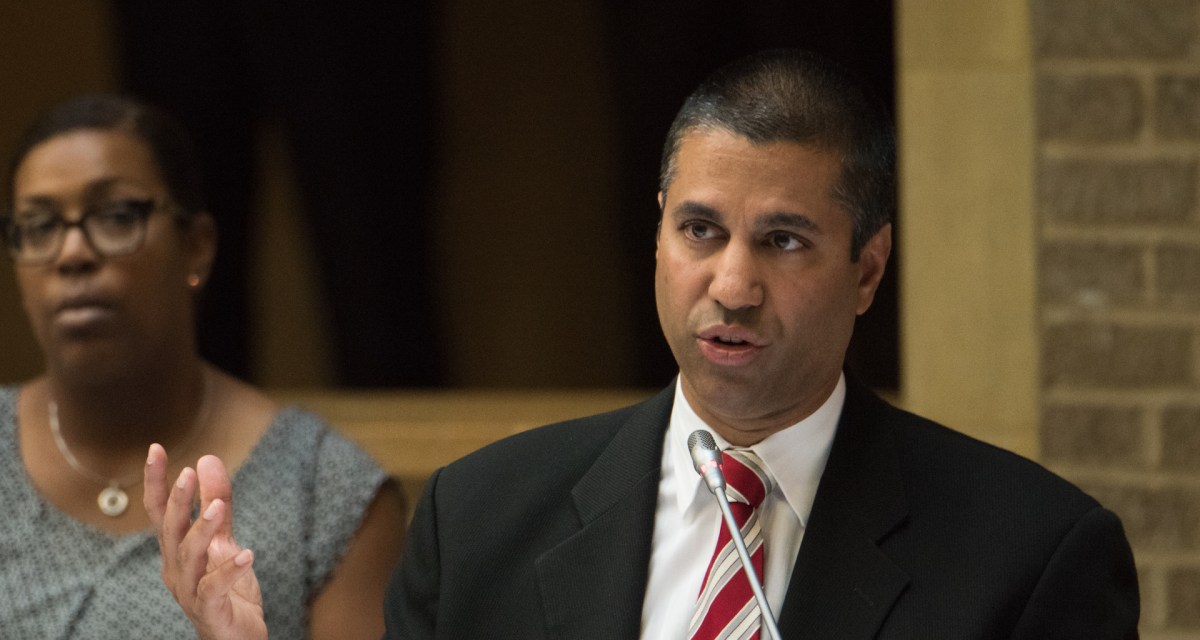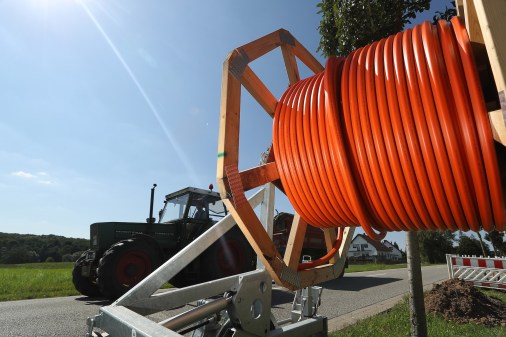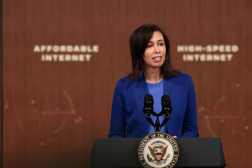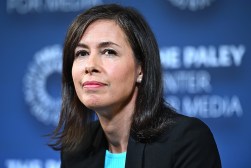With Pai’s departure, FCC likely to restore net neutrality, strengthen municipal broadband

Federal Communications Commission Chairman Ajit Pai’s announcement Monday that he intends to resign Jan. 20 presents the incoming Biden administration with an opportunity to restore net neutrality and overhaul the federal government’s attitude toward municipal broadband, Tyler Cooper, the editor of Broadbandnow.com, told StateScoop.
President-elect Joe Biden will have the opportunity to name a new member of the five-person commission, as well as a new chairperson, when Pai leaves after leading the FCC since 2017. While current Democratic commissioner Jessica Rosenworcel is considered a leading candidate to replace Pai as the chair of the FCC, Cooper said, it’s likely that some of the Biden administration’s policies will be prioritized regardless of who leads.
“Whoever has the FCC in the Biden administration, one thing that is quite likely is the restoration of the title II classification for internet service and the restoration of net neutrality,” Cooper said.
Pai led a December 2017 vote to repeal the Obama-era net Open Internet Order, which had limited internet providers — at a federal level — from throttling internet connections and charging higher prices for exclusive content or certain digital services. States took individual action to protect themselves from the deregulation, but a Democratic-led FCC will likely seek to restore such rules swiftly, Cooper said.
Biden also said during his campaign that he plans to allot $20 billion of a $1.3 trillion infrastructure plan toward broadband infrastructure investment in rural areas. The plan will likely form a “close lockstep movement” between his administration and the FCC, which has split along party lines over the past two years in determining how funding should be disbursed to underserved areas around the country.
Rosenworcel and the FCC’s other incumbent Democratic member, Geoffrey Starks, largely believe that more accurate broadband mapping data is necessary before disbursing billions of dollars to ISPs and localities, while Pai and fellow Republicans on the commission have argued that further delaying such aid will only exacerbate the current digital divide.
One move that a Biden-era FCC could make to instantly bridge that gap, Cooper said, is to take federal action on allowing municipalities to invest in their own broadband networks or co-ops. The “surefire” way to increase broadband access was signaled by Biden when he announced that he plans to triple the funding of the U.S. Agriculture Department’s “Community Connect” grants, which enable municipalities to spend money toward municipal broadband.
“[Biden] has signaled his intent to work with municipal providers to bring access, something that, to my knowledge, has never been acknowledged by a U.S. Presidential candidate and now president-elect,” Cooper said. “We’ve had preemption laws that have been proposed to help municipal broadband flourish around the U.S., but nothing like that has ever been passed at the national level. So municipal broadband remains roadblocked or in some cases completely prohibited in many states.”






